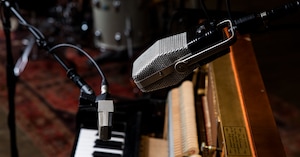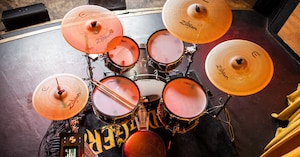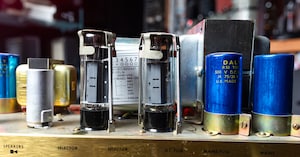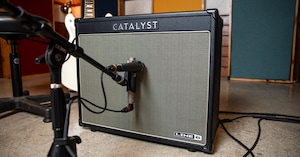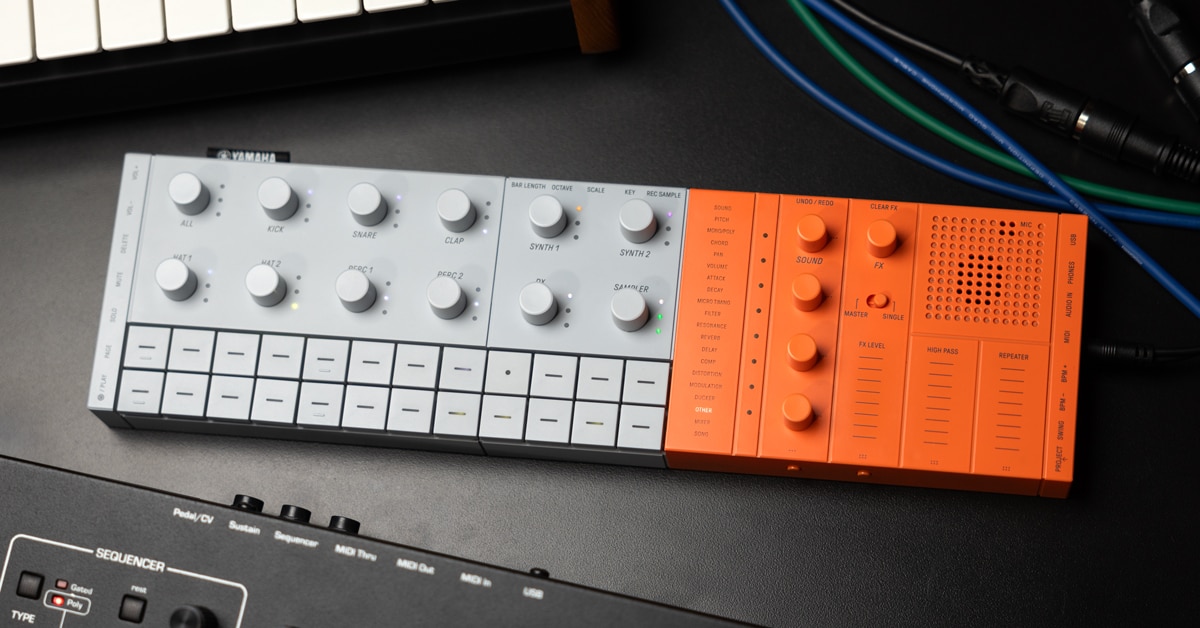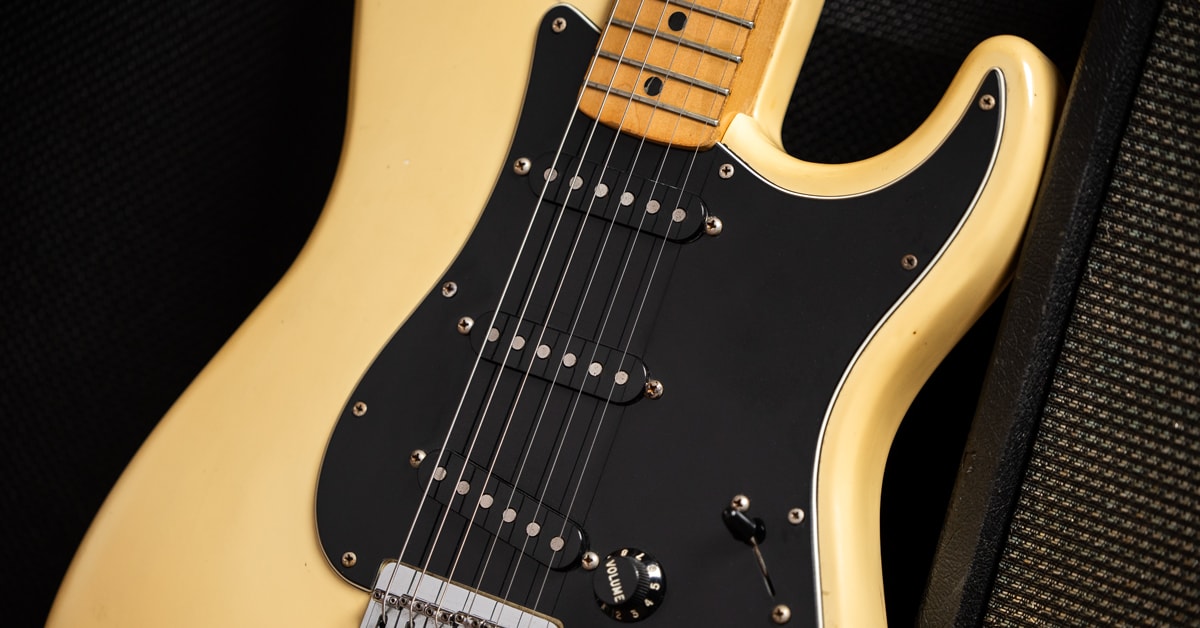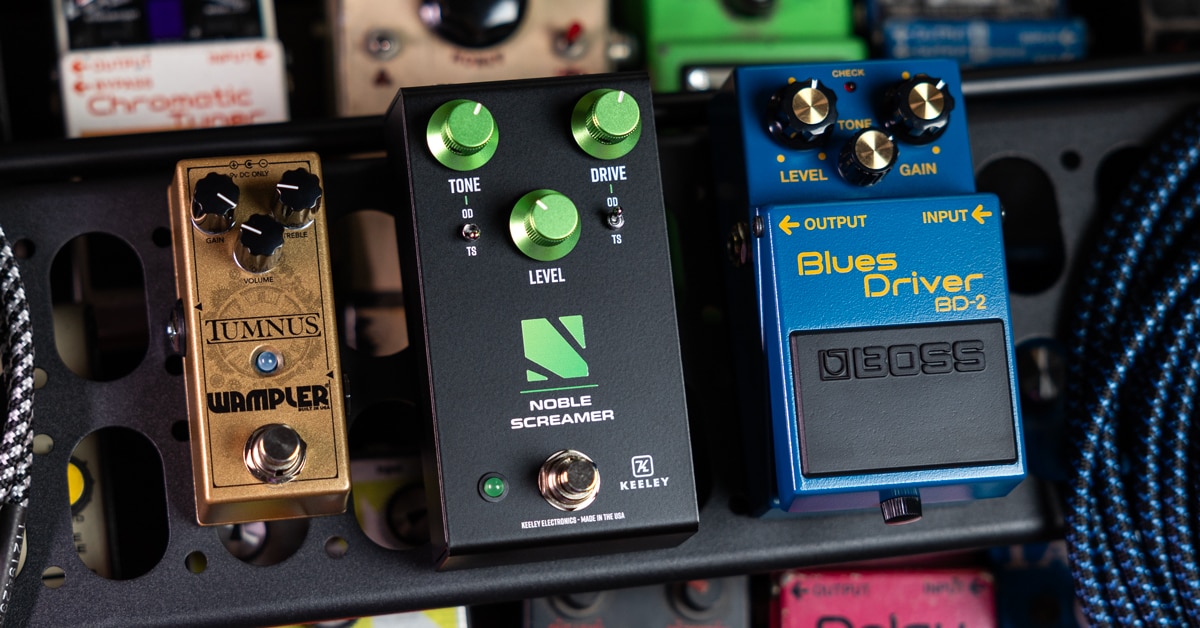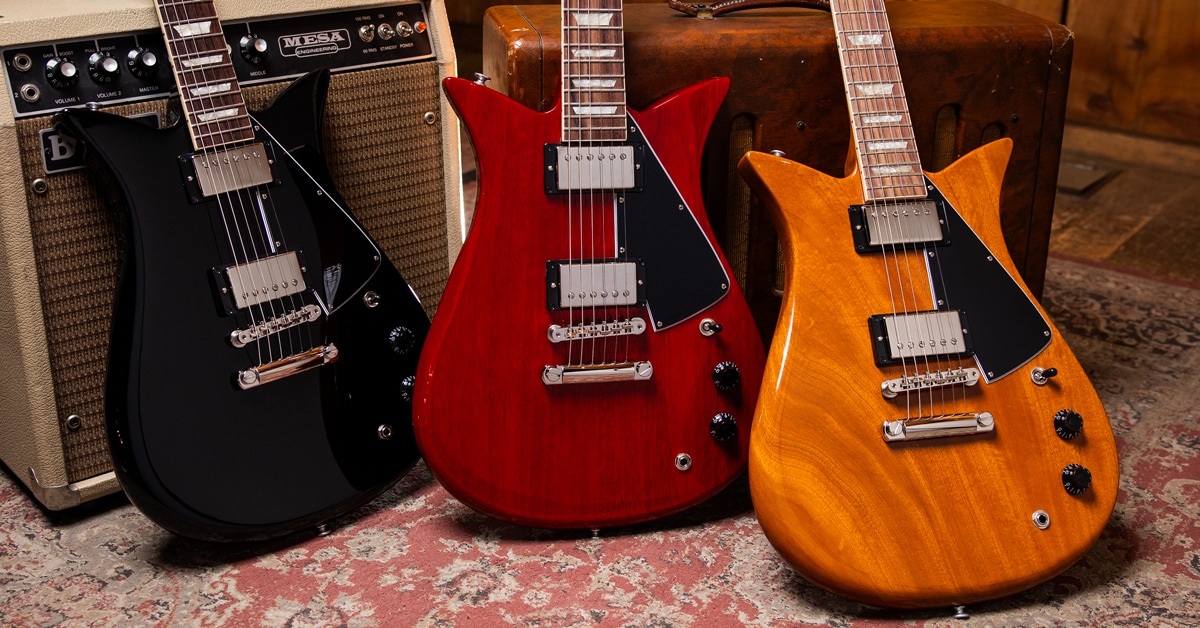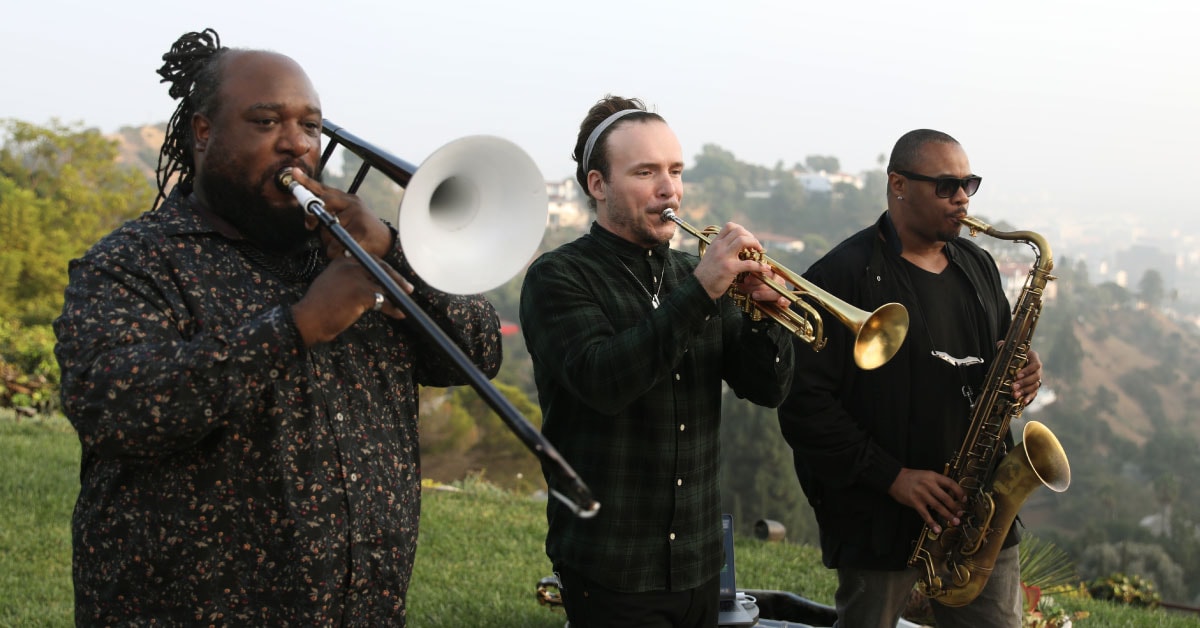When Berklee College of Music grads Sean Erick, Kevin Lloyd Williams Jr. and Leon Silva Jr. traded the East Coast for the West, they formed The Regiment Horns. For the last 15 years, they've added brass to a wide range of artists, recording with Michael Jackson, Coldplay, Lady Gaga, Kelly Clarkson and Mary J. Blige. They've shared stages with Stevie Wonder, Bruno Mars and Dr. Dre, toured with Justin Timberlake, performing to over 100 million during Timberlake's Super Bowl LII halftime show. We talked to the trio about the many flavors that go into their musical gumbo, home recording and why music matters now more than ever.
It's hard to put what you guys do into a box. What's the elevator pitch?
Sean Erick: The Regiment Horns is a three-person horn section, but not a three-piece. I think we counted 10 or 11 different instruments between us. I play the trumpet and the fluegelhorn, so I bring the fire, sizzle, pop to it—the fluegelhorn is kind of like if a trumpet and a French horn had a love child.
Kevin Lloyd Williams Jr.: I play tuba, trombone and flute.
Leon Silva Jr.: I play the saxophone.
Erick: This isn't even all that's on our palette. The ability to mix and combine these instruments give us a very broad spectrum to play around with, onstage as well as in the studio.
Williams Jr.: So how we help other artists or another band is by just really seeing what the band's about and then kind of fitting in. If we see a little crack, we just go in there and like a putty, it expands. It's crazy because sometimes we start playing, and they'll change their whole chordal structure. And then we're really part of that song.
You could all work as soloists. How do you make that cohesive in a group?
Erick: We are definitely three different strong-minded people from different backgrounds. We all bring that to the table. Instead of trying to be this melting pot, it's more like a mixture of all those flavors that still stand out.
Silva Jr.: What's cool about it is that at any given moment or any given situation, one of us will bring the other thing. If I don't have the writing bug that night, Sean got it. If Leon's hearing funk tonight, but it needs to be some country, or hip-hop, Kev got it. It all comes together in that big pot of gumbo.
You studied jazz, but work in many genres.
Williams Jr.: We like to break the rules. We don't want you to put us in a box. So hopefully, what we're doing—putting tubas on a pop gig, putting fluegelhorns on a pop gig—we've been told so many times that doesn’t fit in pop. That doesn’t fit in R&B. That doesn’t fit in classical. And then we go to the sessions, they're like, "Whoa. How did you guys make that fit?"
Silva Jr.: When a song needs something, one of the three of us will have something.
Erick: In all reality, the reason why we do what we do—we make whatever that product is sound better. We take it to another level.
You toured with Justin Timberlake for seven years. How does a horn section affect the audience?
Silva Jr.: A horn section is always gonna add to the flavor. The horn section literally is the one thing on that stage that's completely different than anybody else's stage show. Everyone else got dancers, keyboard players, guitars, drummers, blah-blah-blah. But when you put a horn section up there, that is just different.
Erick: Sonically, what we tend to do is bring out the colors. if it is a happy song, we bring out that happy. If it's a dramatic song, we bring out the drama. There's black-and-white movies and then there's color. We're just always that thing that extracts what's there and makes it more present for people.
How did you handle sessions when you were touring?
Erick: In the beginning, we had kind of a skeleton setup. We borrowed some stuff from here and there. We would call the hotel and be like, "Can we use your meeting room?" And they'd just be super excited. We'd set up laptops in the hall. I got called to do trumpet for one of those singing competition shows. I drove to Guitar Center right after soundcheck, picked up this little bubble mic with a three-prong stand, and just knocked it out. They put it on the show like two days later.

Because of the COVID pandemic, you're all recording at home. What it's like being your own producer?
Erick: It's been something that we've always wanted to have under our belts. It's been a really good thing because learning that process also gives us more skills to communicate with the engineers, with the producers, really getting to fine-tune how we want to present ourselves to other people.
Silva Jr.: It's obviously been an interesting year for musicians, entertainers everywhere. We're all kind of locked at home, for the most part. Learning more about your studio equipment, how to work it, especially with acoustic instruments…it can be challenging.
What equipment are you using?
Williams Jr.: So, microphone-wise, I use a [Blue] Blueberry for flute, and the AEA and the Royers for my trombone. Tuba is more on the AEA for her, the big girl.
Silva Jr.: I use LEWITT microphones, and usually Universal Audio as an interface.
Williams Jr.: Being visually impaired, I had to find a way to get on their level. I started doing research and found out that [I could] just grab the new iPad Pro and Cubasis 3. Bam! I love iPads. I can triple click and it gets really big for me so I can see it. And now I got my Babyface Pro to plug my mics into. It's been a process, and I've been getting better at it, thanks to them helping me.
Erick: Let me tell you something, man. This dude didn’t want to do it. He kept saying, "No, I can't." We was like, "Yes, you can. Trust me. Yes, you can." The first thing he sent back, all the tracks were in line. I was like, "I'm proud of you, but that could've been three years ago." (laughs)
Do you have any tips on recording?
Silva Jr.: I'm a fan of “less is more” when it comes to recording. Horns, you don't have to over-process, over-compress, over-EQ. If you find yourself having to do that, you probably have a problem with your room. So, deaden that room as much as you can. A mattress, a pillow, a blanket—whatever it takes, and get a clean sound.
Williams Jr.: I say don't be afraid to ask questions. Some people get so scared. If you know people who do this for a living, pick up the phone and call them. And then for me, YouTube was a freaking big help. I'm listening to the tutorials all day, and it's pretty amazing.
We make music to take your [sound] to another level. We don't take anything from it. We only build on top of it. We add — and whatever the core feeling of that music was just expands.
How do you continue to find inspiration to make music?
Silva Jr.: I ask that question every morning. But I always get an answer. I've been at this for about 25 years, 30 years, and I've tried to run from it. There was a period of time I took my horn and put it in the case and put it in the attic. It wasn’t long before I was up in that attic getting the horn again. An old-timer once told me the best drug you'll ever do in your life is getting involved in music and becoming a musician.
Williams Jr.: I could be sitting there not being inspired, but then all of a sudden hear a "beep" and the neighbors working on their house. And then I start singing something and I want to pick up my horn and play. Life inspires me to keep playing music. Everything from looking at a tree, walking or the neighbors working on their house.
Silva Jr.: For me, music is very sacred personally but it's also enveloped in a community. There's just always this sense of camaraderie, and it's just a really beautiful thing.
Williams Jr.: In college, I went into the music therapy field, and the whole part of music therapy is the psychology of music, helping people. if someone's autistic, music can help them focus. If somebody is in a hospice, it helps them relax. Music is there to calm, soothe, and bring good memories. We should definitely be on the front lines—even more so now— to help during this crisis.
Keep up with The Regiment Horns at their official website and Instagram.
Kevin Williams plays Pearl Flutes, Adams Brass, Pearl Marching Brass, and uses Parker Mouthpieces.
Leon Silva Jr. plays Cannonball Musical Instruments and Theo Wanne Mouthpieces and uses Lewitt Audio and Microphones.
Sean Erick plays Adams Brass.
